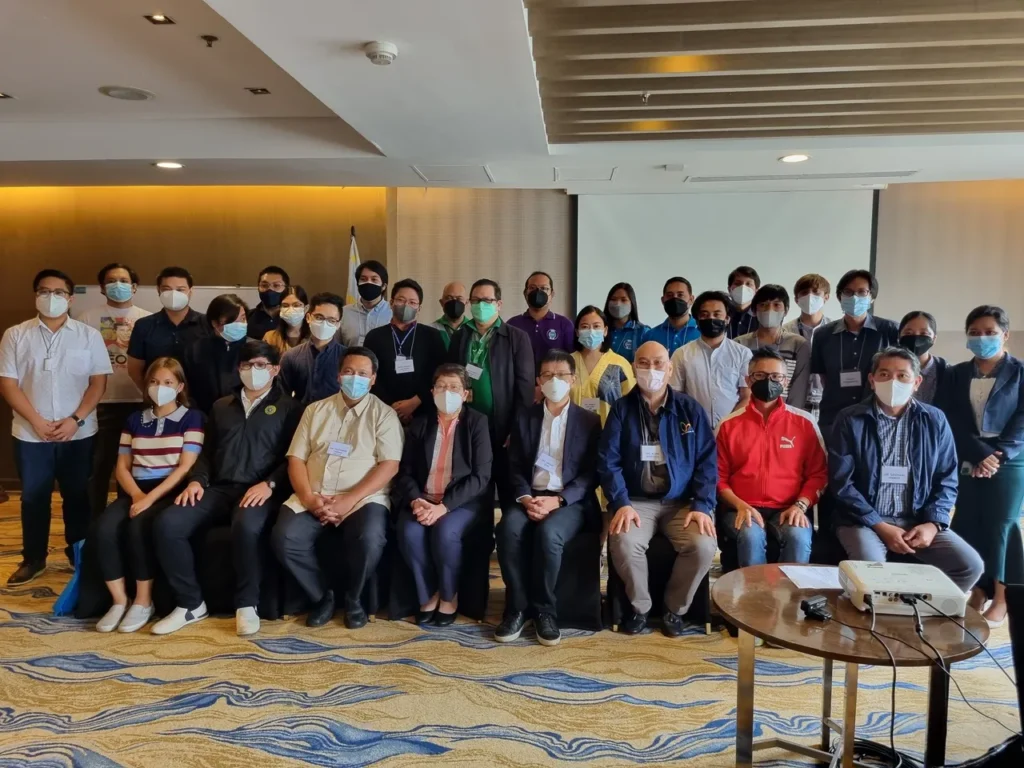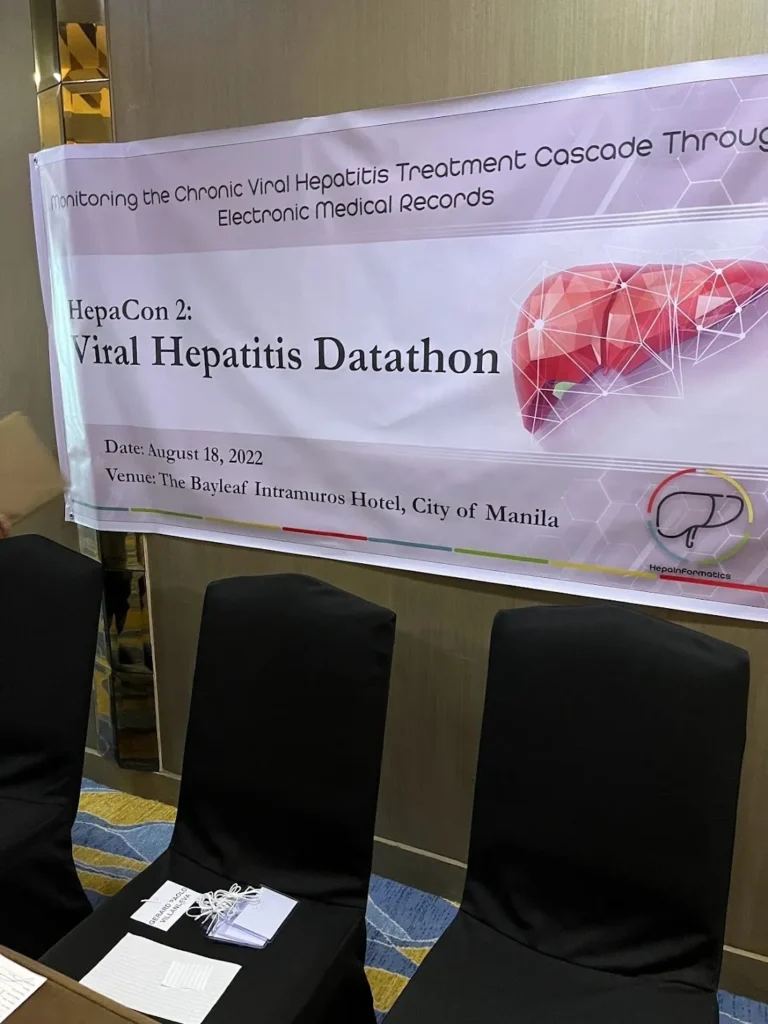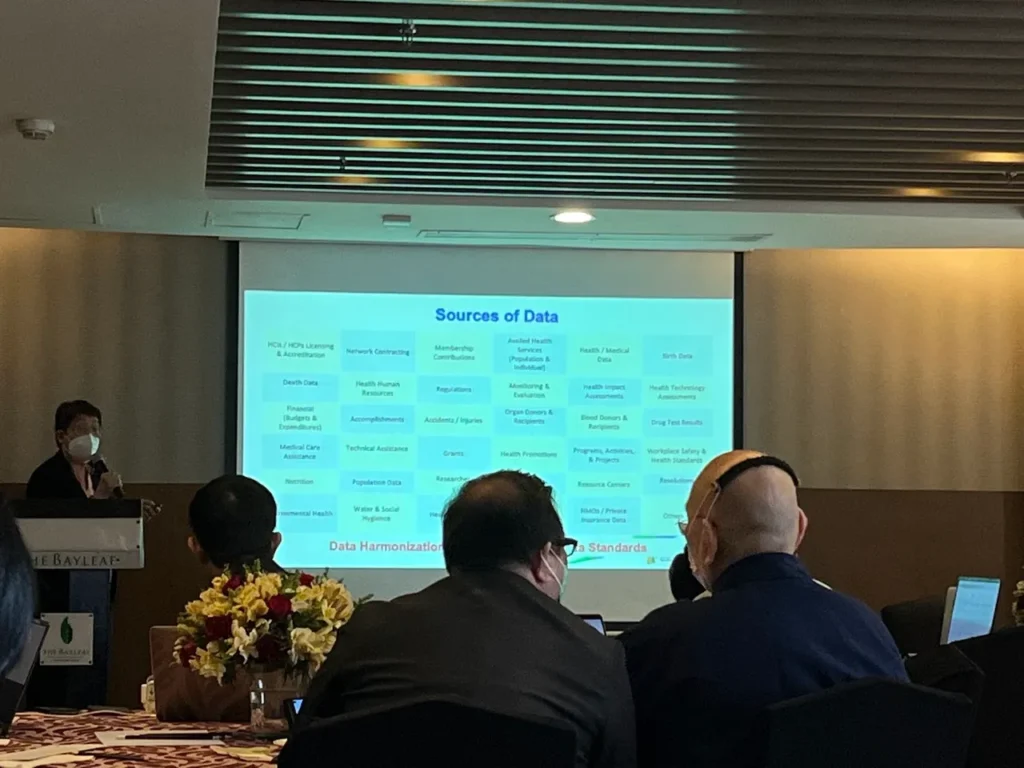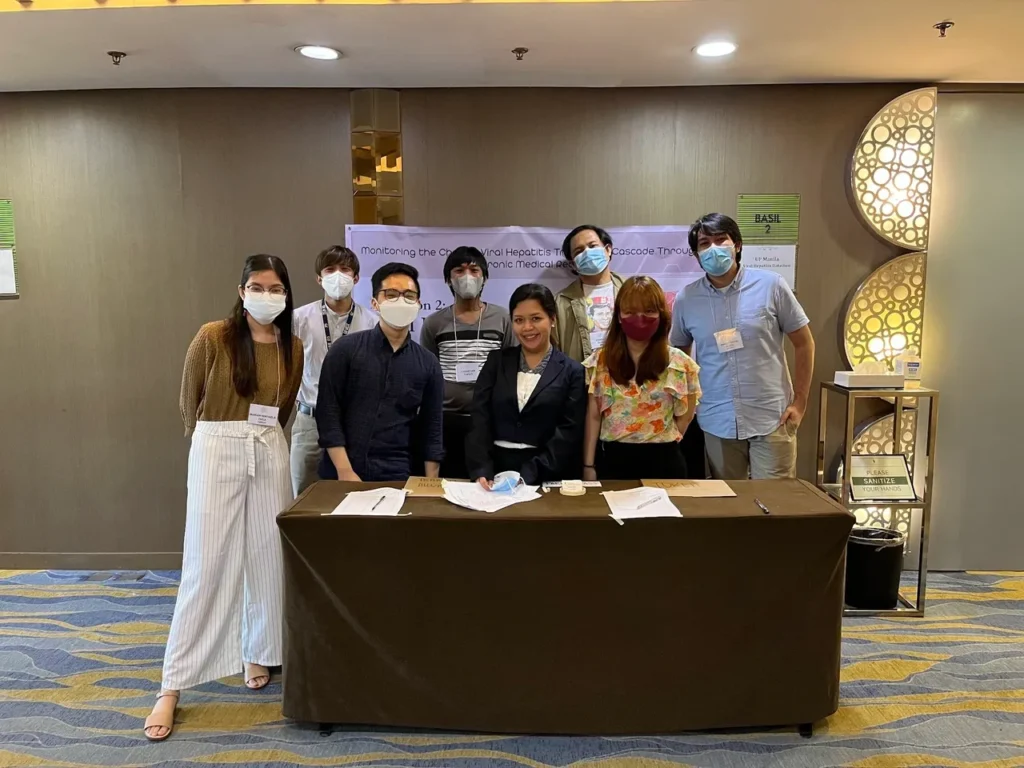From Data to Action: Takeaways from the Viral Hepatitis Datathon
Share this post:

At our company, we are always seeking opportunities to learn and improve. That’s why we were excited to attend the recent HepaCon 2: Viral Hepatitis Datathon – Monitoring the Chronic Viral Hepatitis Treatment Cascade through Electronic Medical Records, an event by University of the Philippines Manila focused on data sharing and innovation in the fight against viral hepatitis. The event was participated by the Department of Health, Philippine Health Insurance Corporation (PhilHealth), academics and researchers, Electronic Medical Record companies, and innovators in the public healthcare system. In this blog post, we’ll share our experience and highlight some of the key takeaways that will help us in our mission to improve healthcare outcomes.

National Health Data Repository
The event kicked off by Jovita V. Aragona, Senior Vice President (Special Assignment on UHC Systems Development & Enhancement, Philhealth) with a presentation on the National Health Data Repository (NHDR), which is the proposed centralized database of health information in the Philippines. The NHDR is the data platform for a unified, end-to-end central repository of all health and health-related data for effective management of the Universal Health Care. This is a valuable resource for researchers, innovators, healthcare professionals, and policymakers who need access to high-quality data to inform their work. As a company that is committed to using data to drive insights and action, we found this presentation particularly informative.

Current Initiatives in Viral Hepatitis
Another highlight of the event was the discussion of current initiatives in viral hepatitis by Jose Gerard B. Belimac, MD, MPH from the Disease Prevention and Control Bureau of the DOH. We learned about the burden of the disease in the country, summary of hepatitis interventions through policies and service delivery, treatment and prevention strategies, devolution transition plans, health guidelines, and current initiatives that are underway to combat this disease. This information will help us stay up-to-date on the latest developments in viral hepatitis and better serve our patients.
Overview of National Viral Hepatitis Surveillance
We also appreciated the overview of the National Viral Hepatitis Surveillance system, which collects and analyzes data on viral hepatitis cases in the Philippines, presented by the Epidemiology Bureau of the Department of Health.
This system mentions the Strategic Information Framework, the client’s process flow, the reporting algorithm, and ways forward of the bureau. As a company that values data-driven decision-making, we recognize the importance of this system and are grateful for the work being done by the Epidemiology Buerau to maintain and improve it.
Overview of One HIV/AIDS & STI Information System (OHASIS)
The Epidemiology Bureau also presented the One HIV/AIDS & STI Information System (OHASIS), an EMR-based system which will capture information from prevention, care, treatment until viral suppression. OHASIS is designed to be user-friendly and accessible, which will make it easier for healthcare providers to enter and access data. This is a great example of how technology can be used to improve healthcare outcomes.
HepaCon Workshop 2: Connecting EMRs through FHIR
Finally, the participants were invited to the hands-on workshop to use the FHIR (Fast Healthcare Interoperability Resources) format to enable healthcare providers to share data more easily in the future. The workshop included discussions on building the data dictionary, WHO SMART Guidelines, the use and adoption of the FHIR format, and many more.

Overall, our experience at the Viral Hepatitis Datathon was incredibly valuable. We learned a lot about current initiatives and technologies that are being used to combat viral hepatitis, and we gained a deeper appreciation for the importance of data sharing and collaboration in the healthcare industry. We look forward to applying these insights to our work and continuing to collaborate with the players in the public healthcare system in the Philippines.
